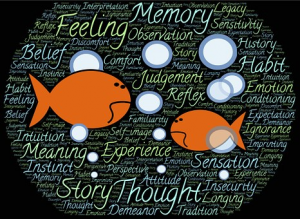
by Faye Cox | Mar 18, 2020 | Uncategorized
At times like this, our minds like to play tricks on us. Our sub-conscious mind goes into survival mode and wants to protect us from danger.
We must thank our sub-conscious for wanting to keep us safe, BUT we must also separate the FACTS of what’s happening with the FEELINGS we’re attaching to it, in order to regain control over our minds and alleviate any anxiety that begins to rise within us.
Here are my favourite techniques to calming the chaos in your mind;
- Create a list of the thoughts that are coming up. Ask yourself
i. Does this thought serve me?
ii. Is this a positive thought?
iii. Can I do anything to change what’s happening?
2. Write 3 sentences relating to your thoughts that better support you. Take a negative thought, re-frame it and create a more positive statement
3. Clear your mind with 5-10 minutes of meditation each day. Morning and evening are good times for this, as you can attach it to your morning or evening routine.
4. Plan out the things you CAN do and work out what steps you need to take to do them and focus on ONE thing at a time.
5. Do some form of exercise – I love to go for a walk in the forest or run at the gym. Yoga and Pilates are also good for gaining a fitter and stronger mind and body.
6. Write a list of all the things you do have, what you’re grateful for and what you love.
7. Do something that brings you JOY. Self-care is key for calming your mind.
8. Write a list of the things you’ve over-come in your life. We spend so much time punishing ourselves for our mistakes, that we forget about our successes. Recognising what’s gone right will help you refocus your mind on the positives.
AFFIRM to yourself every day that ‘ALL IS WELL IN MY WORLD’
In times of anxiety you may also notice some physical symptoms, sometimes called Somatic symptoms. These can be;
- A tightening of the chest
- Sweating
- Being startled and scared easily
- Diarrhea
- Rapid heart rate
- Shortness of breath
- Lack of concentration
- Problems sleeping
- Tense muscles
If you feel tension in your body for any reason here is a good positive muscle relaxation technique
Tense each muscle group in the body hard for about 10 seconds and then slowly let go. Allow the feeling of relaxation to continue for 15-25 seconds and continue onto the next muscle group requiring tension. Take notice of how each muscle group feels when completely relaxed in direct contrast to how it felt when completely tensed before moving onto the next muscle grouping.
Tell yourself to ‘relax‘ in your mind as you do it to help you focus. Now, let us look at the muscle areas to be worked during the exercise.
Firstly, clench your fists and then hold for 10 seconds and then slowly release. Relax for 15-25 seconds. Tighten your bicep muscles by actively pulling your forearms up and towards your shoulders and tightening both muscles to the point that the bicep muscle can be seen visibly raised. Hold for 10 seconds then slowly release. Relax for 15-25 seconds. Tighten your tricep muscles, which are the muscles on the underside of the upper arms, by extending your arms out straight and locking your elbows. Hold for 10 seconds then slowly release. Relax for 15-25 seconds. Carry on doing this with every muscle group until you get down to your toes.
Now picture and feel a wave of complete relaxation slowly spreading throughout your body, starting at your head and gradually sinking through each of the muscle groups right down to your toes. Repeat 2 more times until you feel completely relaxed and at peace.
I hope you found this useful and if you’d like any further help you can book a FREE 30 minute clarity call with me or check out my range of services

by Faye Cox | Mar 16, 2020 | Uncategorized
Some people have a difficult time in managing their anxieties and fears. In addition, a person’s self-esteem and self-confidence can also suffer. As a result, here is a list of techniques a person can use to help manage their anxieties, fears, and self-esteem.
Remember that practice makes perfect. Whenever it comes to dealing with your anxieties or any other task; practice, patience, and persistence is the name of the game. If you don’t get the desired results the first time around, then keep trying until you do. Through practice, you will become better at the task at hand and your self-confidence will increase. This also applies to managing your anxieties.
In every anxiety-related situation you experience, begin to learn what works, what doesn’t work, and what you need to improve on in managing your fears and anxieties. For instance, you have a lot of anxiety and you decide to take a walk to help you feel better. The next time you feel anxious you can remind yourself that you got through it the last time by taking a walk. This will give you the confidence to manage your anxiety the next time around.
Sometimes, we can get anxious over a task that we will have to perform in the near future. When this happens, visualise yourself doing the task in your mind. For instance, you and your team have to play in the championship volleyball game in front of a large group of people in the next few days. Before the big day comes, imagine yourself playing the game in your mind. Imagine that you’re playing in front of a large audience. By playing the game in your mind, you will be better prepared to perform for real when the time comes. Self-Visualisation is a great way to reduce the fear and stress of a coming situation and increase your self-confidence.
Don’t forget to ask for help when needed. A person can only do so much. Asking for help can give us additional resources to help manage our fears and self-confidence. It is not always easy, however as humans, we thrive on being asked to help others and if you ask the right people it will lighten the load. Remember the old saying ‘a problem shared is a problem halved’.
Write down on a list everything that you are thankful for. Do not take anything for granted. The next time you feel down, take out your list and review everything that you have listed. This is a great way to remind us of what we have when we lose sight of the good things.
It can be difficult to manage our anxieties and self-esteem. If you are having trouble despite asking for help from friends and family etc. then talk to a professional who can help you manage your fears, anxieties and self-esteem. They will be able to provide you with additional advice, techniques, tools and insights on how to deal with your current problem. In the meantime, remember to take it one day at a time.
You can book a FREE 30 minute clarity call with me to see how I may be able to help

by Faye Cox | Mar 9, 2020 | Uncategorized
My beautiful bundle of joy arrived safe and sound on the 5th September 2012, 2 days after my 37th Birthday. She was 2 weeks late, but finally arrived quickly and without complication.
It was an exciting, emotional and proud day for me, my husband and her big sister, who was immensely excited to have a little sister to play with.
Being a parent for the second time, I thought was going to be a walk in the park! I mean, how different can two little girls from the same parents be!!!!
It was clear from about 3 days in that our baby girl was going to be strong willed, she was going to be vocal and she was going to be one of life’s fighters. Her fighting spirit became apparent, when at 2 ½ weeks old things took an unexpected turn.
A few weeks beforehand there had been some local cases of ‘Impetigo’, a regular and common childhood infection that to most people was more a pain in the backside due to it’s highly infectious nature and how it took ages to fully get rid of. Our eldest caught a mild form, she was 18 months old. It was treated with antibiotics and we thought no more about it.
BUT, what we didn’t know at this time was that this wasn’t going to be the end of it.
One afternoon, my mum was at our house and the health visitor came to do her regular checks. On this day my daughter was particularly irritable and was displaying a rash all over her body. The health visitor told me not to worry, it was perfectly normal for new-born babies to have this kind of rash. Once again, we thought no more of it.
On 21st September, 5 days after the health visitor had been, I noticed that daughter was becoming more distressed and wasn’t settling at night. The next day I noticed that her skin was bright red all over and she had what looked like the start of ‘Impetigo’. I took her to the doctors who gave me some cream and sent us on our way.
On 23rd September after a very restless and stressful night. We were all shattered at this point. Both my husband and I were surprised to see that over the course of the night she had suddenly started to show signs of more and more scab type spots. They appeared on her face first, and spread over her body. It was like they were appearing as we watched. I’ve never seen anything like it. I took her straight back to the doctor who checked her over, gave me some antibiotics and told me to give it 24 hours and if there was no sign of any improvement to take her to A&E!
BY the time my husband had come home form work that evening, things were even worse. He skin had become like crepe paper. I held her face to my shoulder and when I moved her head away ahead, some of her skin was left on my clothing. It was at this point that we made the decision to go against to doctor’s advice and we headed for A&E.
What happened when we got there was not what we were expecting. There was a part of me that was questioning if we were over-reacting? should we have just trusted what the doctor said? Are we wasting their time being here?
We were rushed straight through and saw several doctors who asked what felt like a zillion questions until finally the head of Paediatrics arrived and told us that she had ‘severe impetigo’ which had turned in to blood poisoning and she needed to be treated urgently.
I’ll never forget the doctors face when she said those words. I was in shock, my husband who is normally as calm as a cucumber asked the question I didn’t want ‘She is going to be OK isn’t she? We waited for the reply which felt like forever, even though in reality it was only a few seconds. She told us that the next 24 hours were going to be telling and that if we’d listened to the GP’s advice and waited, she would have been dead by the morning!
I have never felt fear like it before in my life. How can you have a healthy, gorgeous baby girl one minute and then be told a few days later that she was basically fighting for her life.
At this point I totally lost control. My thoughts just couldn’t be silenced, and I felt like I’d failed my little girl. All the questions ran through my mind ‘What if we had listened to the GP? What if she hadn’t made it? Why didn’t I act sooner? How did I not know before?
All the self-doubt kicked in and I began to wonder if I was cut out to be the mum I had always promised to be.
Fast forward to the last week of August 2013 and I was a proper mess. I started to self-medicate with alcohol. Not for the first time, but that’s a whole different story. The thought of my daughters First Birthday, the one was all look forward to, the one we can’t wait for, terrified me. I started to re-live that day back in September 2012. I cried for days on end and when her birthday came, I was completely overcome with emotion.
For the next 5 years It was the same cycle. Re-living that day, the crying, the overwhelm of fear and doubt. It wasn’t until she turned 7 that I was able to fully enjoy her special day with her without the fear and dread.
I later realised that I had been suffering from Post-Traumatic Stress Disorder (PTSD). My mind had taken over and I had spiralled in to a life of negativity, fear and self-doubt.
It took a while to re-wire my mind, accept how I felt, rationalise the fear and most importantly forgive myself, but I got there. In fact I now live a more positive life than ever before full of gratitude, love and joy!
Our beautiful funny, sassy, kind and hugely loving daughter turns 8 this year and I can’t wait to celebrate with her and her friends. She makes me proud each and every day. She has fire in her belly and the biggest heart I’ve ever known and I am grateful that I get to love her every day of my life!
I had no idea what Post Traumatic Stress Disorder (PTSD) was until I completed my coaching and CBT training. For 5 years I re-lived the horrors of that day, but had I known what was happening I would have been able to deal with it differently. I never discussed how I felt, I turned to something that I know so many of us do which only makes things worse in the long run.
I urge anyone who thinks they may have suffered PTSD (Post Traumatic Stress Disorder) to speak up, seek help and start the healing process.
I also want people to be fully aware that Impetigo may be a pain in the back side for young children, but for newborns it can be fatal, so please be careful around pregnant women or those with a new born if you ever suspect your child may have it.
If you’d like to speak about how I can help with Post Traumatic Stress Disorder you can arrange a call here
Alternatively you can check out my services here

by Faye Cox | Feb 6, 2020 | Uncategorized
Do you know what’s holding your self confidence back?
It’s great that you have decided to build your self-confidence. However, there are a few obstacles that can keep you from achieving your goal.
Most of the time, these obstacles are so obvious that they do not seem like obstacles at all, and all you can see is that your resolve to be self-confident is not taking you anywhere. Therefore, it is important to become aware of these seemingly harmless obstacles that have all the power to stop you in your path. Let’s have a look at what could be the reasons you’re not moving things forward.
Are You Undisciplined?
Some people simply have the talent to waste a lot of time without realising it. They lack the self-discipline to stop those actions that waste time. Imagine a situation where you have a list of tasks to be completed successfully as a part of your self-confidence building program.
However, the moment you enter your home you involuntarily grab the remote and start channel surfing on the square box in the corner of the room. It’s only after an hour that you realise you have been vegetating in front of the T.V in the time you had scheduled to do other tasks.
In a self-development program, it’s you and only you who has the power to change yourself. Nobody will come to monitor your actions and progress. You have to keep a watch on your inner graph and see to it that it goes up! Avoid temptations and stick to your schedule.
Are You Always Procrastinating?
Procrastination is one of the greatest and most silent killers of confidence. It does not let you complete your jobs and tasks in time. Things keep mounting and finally you get overwhelmed by all the many things that have piled up and need your attention.
The very basics of building confidence starts with listing the little things that are doable. You gain more confidence to take on greater tasks and responsibilities by successfully completing the lighter tasks first.
However not being prompt and delaying important things till they become urgent makes you miss the opportunity of working on your confidence and puts you in danger of falling back again into your earlier cycle, thereby wasting all the effort and energy you had put in to becoming aware of your low-confidence trap and getting out of it.
Does Your Old Self Keep Pulling You Back?
Assume. Assume. Assume is the technique here. Assume that you are a different person with habits you wanted to achieve..
Imagine the way you would like it to be. Imagine a self-confident you taking things in your stride. Then try to bring into your daily actions the way you have imagined yourself to be. “I dream by painting. Then I paint my dream” was the technique that the great painter Vincent Van Gogh followed.
Your assumed self will make people react to you in a different way, according to your new self. This will establish your new self to the world and will help you keep up the new self before it becomes a habit and second nature!
If you behave indecisively and helplessly, you will invoke proportionate reactions from people around you, thereby reinforcing your previous self. This throws you back again. Remember, you cannot get ahead if you keep looking back. Recognise this and stop yourself when you feel you’re sliding back.
Don’t Copy Self-Confidence. Don’t Try To Be Like Someone Else.
One of the greatest mistakes that people make when trying to increase their low self-confidence is falling in love with an image of their icon who may be a sports star or a film star or any celebrity and then they try to be like them.
This is one of the biggest mistakes people can make when trying in increase their self-confidence. You have to be yourself at all costs. Getting inspired is wonderful but merely copying these guys won’t take you anywhere.
There is no need for any two people in this universe to be exactly the same. The challenge is to be yourself in a world that is trying to make you like everyone else!
Try our FREE 12 day Building Confidence mini email course and get started on your journey to a more confident you TODAY!

by Faye Cox | Jan 10, 2020 | Uncategorized
Self-confidence is important to all of us. In the stress literature, it’s one of the characteristics of the hardy professional, the professional that remains healthy in the face of the high stress of constant change. It’s important, but how do you build and maintain a viable and realistic self-confidence?
One way to look at self-worth is to see it as an inference from what you say to yourself privately about yourself. It’s estimated that you make between 300 to 400 self-evaluations per day. Unfortunately, for the majority of us, those evaluations are far from kind. Most major in self-criticism. Research suggests that for the average person 80% of their self evaluations are negative; only 20 percent are positive.
A good mistake can often be worth 45 minutes of self-whipping-“That was stupid. I can’t believe I said that. And they were all watching me. They’re probably going home tonight and talking about me!” If that’s not bad enough, we have an old file clerk in the back of our brain that responds to our attack and goes back to check the evidence-“Just a minute, boss. Let me check the ‘stupid’ file here. Why yes, you are stupid! In fact, you’re getting worse. This reminds me of the time you…” Most of us are good at making ourselves feel worse, not better.
Even when you do give yourself the luxury of feeling good about something you did, it seldom lasts long. We discount our successes-“I was lucky!” “It’s about time; I should’ve done this weeks ago!” “They could’ve done better!” When was the last time you lost sleep over a good day? Never!
Even though self-critical, we put our best foot forward publicly. We present ourselves as being 95% effective and admit making an occasional mistake to be human. You may fool others, but you don’t fool yourself. When you compare what you know about yourself with everyone else’s public image, you lose badly. When you major in the self-critical, you end up searching for loved ones, parents, friends, and bosses who will affirm you and make up for your own lack of self-esteem. Unfortunately, when you have to have the support of others, they control your confidence. By withholding approval they can leave you feeling less effective, less confident and more dependent.
You would not talk to others the way you talk to yourself! “You did that? You’re stupid! Did anyone see you? They saw you! Do they know I know you? I mean it reminds me of the time you….” Who needs friends like that! If a manager talked to an employee the way you talk to yourself, he could file a grievance and win. You deserve the same if not better treatment than what you would give a friend. Learn to make room for your mistakes as learning experiences.
Since mistakes are a part of life in the fast lane, we need to find ways to be self-critical without majoring in self-whipping. Start by looking at criticism as course-correction data that helps us get back on track in our journey to success. The goal is not conviction or blaming; it’s providing future-focused feedback that allows you to be more effective tomorrow!
Scott Adams, the Dilbert Cartoonist, put these insights into practice in dealing with a novice tennis partner: “Once at a tennis tournament, I was paired with a woman who had just learned how to play. Every time she missed a shot, she immediately turned to me, expecting that I would be disappointed or frustrated. Instead, I talked to her about our strategy for the next point. By doing so, I sent a very important message: The past doesn’t matter. I didn’t encourage her with empty praise-that rarely works. But I know that if she dwelled on a mistake, she was more likely to repeat it, and that if she focused on how we were going to win the next point, she was more likely to help us do just that. Over several days, her abilities improved dramatically and we ended up winning the tournament.”
Treat yourself the same way. Life is like a moving vehicle with no brakes. If you spend too much time in the rear-view mirror, you will hit a tree out the front window. In fact, that is why your rear-view mirror is smaller than your front window. Get out of your rear-view mirror and start focusing on driving to a desired future. Try letting go of the general self-attacks; use specific feedback. What did you do that you did not handle well?
Remember, it is easier to admit you made a mistake than to admit you are one. I’m not rude, but I’ve had moments of road rage that I’m not proud of. I know it wasn’t appreciated either; the other driver didn’t even wave with all his fingers!!
After identifying a specific mistake, focus on the future by asking two key questions: First, what can you do to rectify the problem? If any constructive action or apology could help rectify the problem, do just that. Secondly, and most importantly, how would you handle the same situation if it were to occur again? If you have a valued colleague or friend, use them as a sounding board. If not, write down your thoughts or use these questions to help focus your self-criticism. When you’ve learned from the past and focused on a new strategy, get back into the game of life.
Self-confidence begins when you can learn from errors, and then move beyond them to consistently improve. Welcome to the challenge of turning your mistakes into stepping stones to making change work for you. To really make a difference add the habit of ending the day by catching yourself being effective; use a journal to record at least 3 things you’re grateful for and 1 success. You may be winning and not know it if you’re not keeping score!
To find out more about how you can build your own self-confidence go to our website or find us on Facebook
by Faye Cox | Nov 19, 2018 | Uncategorized

Do you really know yourself?
It is becoming more and more apparent that so many of us in today’s society are struggling with who we really are. Many of us are loosing ourselves after having children and then again once we hit a certain age……this is definitely true for myself. My husband has also struggled with this in recent times.
I am very happy to say that I am now 100% confident in knowing who I am, having gone back to look at who I was before parenthood, my likes, dislikes etc, plus I’ve been trying some new activities and interests. Change is always happening around us and we also need to embrace changes within us as we grow as individuals and our lives change due to age and circumstance.
Knowing yourself means that you know what path is right for you. You no longer seek approval or permission from others. You are confident to stand alone and be your true-self no matter what outside influences are trying to tell you.
This path is so often blocked by Limiting beliefs that knock confidence and self-belief. The journey to self discovery can be a long, lonely and sometimes difficult road, but once you have completed the journey it feels so worth while. I felt that I lost myself even further when I first started. I doubted who I had ever been, as some of my past interests just didn’t work for me anymore. I felt numb through some parts of the journey, mainly due to my limiting beliefs. Some of which I was already aware of and others that I had to delve really deep within myself to discover and deal with.
be a long, lonely and sometimes difficult road, but once you have completed the journey it feels so worth while. I felt that I lost myself even further when I first started. I doubted who I had ever been, as some of my past interests just didn’t work for me anymore. I felt numb through some parts of the journey, mainly due to my limiting beliefs. Some of which I was already aware of and others that I had to delve really deep within myself to discover and deal with.
Finding YOU is a massive change for most of us, but it’s the best change you will ever make!
You will know where you fit and where you are meant to be going…..now, who doesn’t want that for themselves?
Below are a few ways that I took to figure out where I am going and who I truly AM:
- Firstly, simply write down what your life values are – we all have them, but very rarely sit down and notice what they are. knowing are values is fundamental to a happier and more fulfilled life.
- Ask yourself this question – WHO AM I? write down who you are now in this moment. This will be hard at first.
- Write down your FEARS? be completely honest with yourself. Your fears are strongly connected to your ‘limiting belief system’ and this is what’s holding you back from making the necessary changes.
- Think about and write down any outside influences. Are the goals that you’ve been setting yourself really YOURS, or do they belong to family, friends or fellow colleagues!
- Who do you spend the majority of your time with? It is said that ‘you are the average of the 5 people you spend the most time with’. Are you mixing in the right circles where people are lifting you up, OR are you being drained by other people’s negative energy?
This exercise can trigger some big changes, don’t be scared of making them, you owe it to yourself to be your best YOU and l ive a happier and more fulfilled life as the REAL you. You’re only on this earth once, so make it count.
ive a happier and more fulfilled life as the REAL you. You’re only on this earth once, so make it count.
If you’d like to delve deeper and are not sure if you want to do this alone, then please feel free to contact me here for a FREE discovery call.








 ive a happier and more fulfilled life as the REAL you. You’re only on this earth once, so make it count.
ive a happier and more fulfilled life as the REAL you. You’re only on this earth once, so make it count.